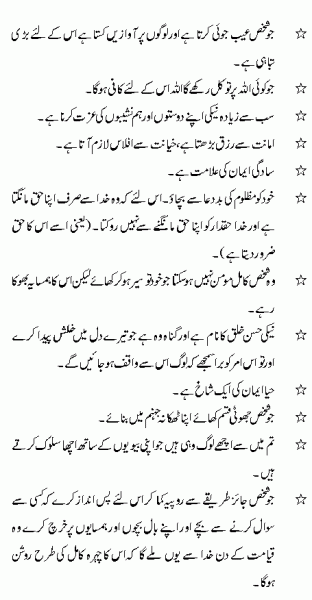Can anybody imagine this life without faith? The answer will be very hard to accept because our life will be meaningless, futile, and absurd. In other words, it is faith that gives meaning and substance to this life.
All of us have heard of mercy killing (scientifically called euthanasia) which refers to some people’s desire to put an end to their life because they suffer from an incurable disease. It is legalized in some countries such as Holland, where the patient signs an agreement with the doctor or the hospital to put an end to his life.
These patients seem to have no faith at all. They think of disease as a kind of physical torture and they would like to put an end to this torture. In contrast to them, people who have faith have a different point of view on disease. They think of it as a kind of tribulation. Allah is testing their faith: how forceful and strong it is, “Do men think that they will be left alone on saying, “We believe”, and that they will not be tested?‘ (Qur’an, 29:20)
Although there are some people who seem not to believe in Allah, yet they have inborn, inner faith. This is so apparent when a natural disaster takes place, you find all people crying “O, God.” So in times of distress and disasters, they turn to Allah because deep inside them, they know that He is the only one who can help them. We read in the newspaper that the highest rate of suicide, according to official statistics, is in Sweden, the country that enjoys the world’s highest standard of living and individual income.
What is so shocking is that more than 90% of those who commit suicide are young people aged between 15 and 25, although Swedish law provides all types of freedom including sexual freedom (it is legalized for a man to ‘marry’ another man and for a woman to ‘marry’ another woman). What is so ironic is that there are a lot of companies working in the field of suicide organizations!
This can be easily explained because most of, if not all, these young people do not believe in Allah. This absence of faith makes their life empty, boring, and aimless and this is why Satan moves them as the player moves the pieces of chess on the chessboard.
There is an American psychologist who wrote a book entitled Back to Faith, in which he comes to the conclusion that, after his long experience with patients, he found that it is faith that has the healing effect. A man without faith will never be able to get rid of his psychological problems.





